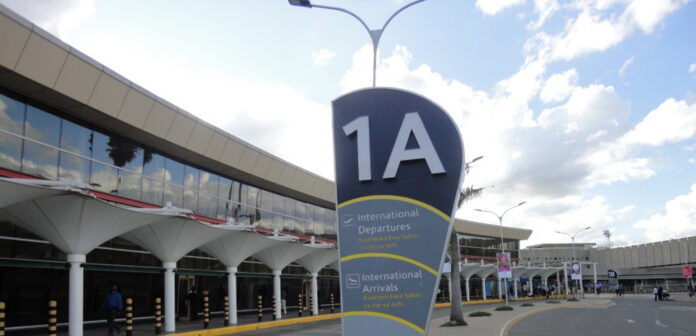The controversial deal to hand over one of Kenya’s most prominent national assets, Jomo Kenyatta International Airport (JKIA), to single-sourced group of foreigners continues to generate heat amongst Kenyans and public policy analysts.
In one of the latest criticisms on the controversial bid that is being pushed by the government, public policy and aviation industry analyst Leonard Khafafa has opined that if it is a must that the government must take Adani’s money, the money should go to a new airport away from the JKIA.
According to Mr. Khafafa, it does not make sense that Kenya is handing over a national asset for a period of 30 years for mainly refurbishment works while neighbouring countries such as Rwanda and Ethiopia who have airlines and airports that are in direct competition airports are building modern new airports with better-termed investments from the ground up.
“Kenya’s solution to the constraints at JKIA may lie in the building of a totally new facility. JKIA faces many challenges that cannot be resolved by further patchwork. Because of its relatively high elevation, planes cannot fly to the US on a full load. It is for the same reason some models of fully loaded planes cannot fly to Europe,” says Khafafa.
He suggests that a better longer term solution would be to consider attracting investors with the aim of building a new airport at a more strategic location such as the Konza plains, and upon completion, convert the JKIA to a cargo and domestic hub.
How Ruto’s government went against experts’ advice for JKIA investment in Adani deal
“JKIA should be left to domestic and cargo traffic and developed to its maximum potential from own-source revenues and loans obtained using its land assets as collateral. International traffic should be shifted to a new airport at Konza where mega foreign proposals are better suited,” he says.
He argues that this approach can work because of Kenya’s strategic position as a source of aviation traffic.
“Kenya is a source of aviation traffic. It has multiple international organizations like the UN headquartered within the country. It is also a destination with the irresistible lure of beach and safari tourism among other compelling products. In contrast, Ethiopia is just a transit hub whilst Rwanda is still finding its footing in the aviation space,” says Khafafa.








